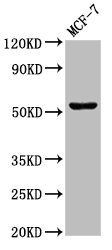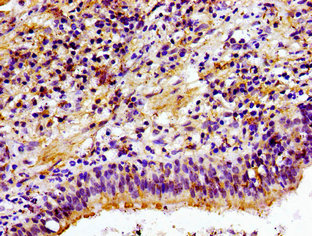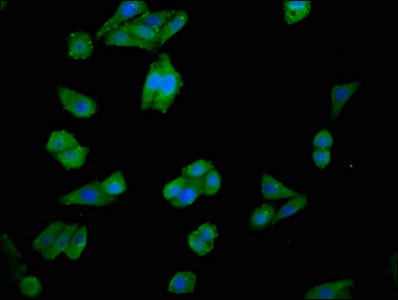Full Product Name
Rabbit anti-Homo sapiens (Human) CHKA Polyclonal antibody
Alternative Names
CHKA antibody; CHK antibody; CKI antibody; Choline kinase alpha antibody; CK antibody; EC 2.7.1.32 antibody; CHETK-alpha antibody; Ethanolamine kinase antibody; EK antibody; EC 2.7.1.82 antibody
Immunogen
Recombinant Human Choline kinase alpha protein (79-173AA)
Immunogen Species
Homo sapiens (Human)
Conjugate
Non-conjugated
The CHKA Antibody (Product code: CSB-PA005353LA01HU) is Non-conjugated. For CHKA Antibody with conjugates, please check the following table.
Available Conjugates
| Conjugate |
Product Code |
Product Name |
Application |
| HRP |
CSB-PA005353LB01HU |
CHKA Antibody, HRP conjugated |
ELISA |
| FITC |
CSB-PA005353LC01HU |
CHKA Antibody, FITC conjugated |
|
| Biotin |
CSB-PA005353LD01HU |
CHKA Antibody, Biotin conjugated |
ELISA |
Purification Method
>95%, Protein G purified
Concentration
It differs from different batches. Please contact us to confirm it.
Buffer
Preservative: 0.03% Proclin 300
Constituents: 50% Glycerol, 0.01M PBS, pH 7.4
Tested Applications
ELISA, WB, IHC, IF
Recommended Dilution
| Application |
Recommended Dilution |
| WB |
1:500-1:5000 |
| IHC |
1:20-1:200 |
| IF |
1:50-1:200 |
Storage
Upon receipt, store at -20°C or -80°C. Avoid repeated freeze.
Lead Time
Basically, we can dispatch the products out in 1-3 working days after receiving your orders. Delivery time maybe differs from different purchasing way or location, please kindly consult your local distributors for specific delivery time.
Usage
For Research Use Only. Not for use in diagnostic or therapeutic procedures.









